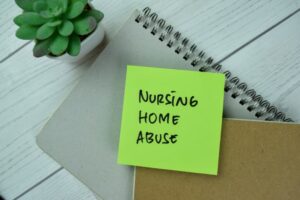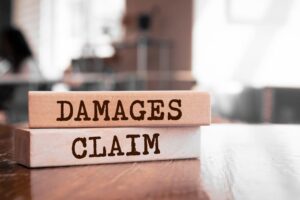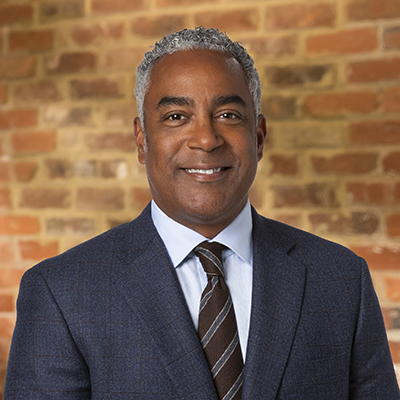Filing a nursing home abuse lawsuit often becomes necessary when a loved one suffers mistreatment in a facility that was supposed to care for them. Abuse in nursing homes remains a serious problem in Virginia. Families trust these facilities to provide safety, but some staff members take advantage of that trust.
When neglect or harm occurs, legal action helps protect not just your loved one but also other residents who may be at risk.
If you or someone you love has suffered harm in a Virginia nursing home, you’re not alone. Many families feel shock, anger, and heartbreak after discovering what happened. A free consultation with a nursing home abuse attorney near you can help you figure out the next steps and make sure your loved one’s voice is heard.
Programe una consulta gratuita
Understanding nursing home abuse and neglect in Virginia
Nursing home abuse and neglect can take many forms. Abuse may be intentional, while neglect usually involves failure to act. Either way, both lead to harm and suffering that no resident should have to endure.
Types of abuse in nursing home settings
 Abuse in nursing homes doesn’t always involve bruises or cuts. It might include:
Abuse in nursing homes doesn’t always involve bruises or cuts. It might include:
- Physical abuse, such as hitting, restraining, or rough handling
- Emotional abuse, including yelling, threatening, or isolating the resident
- Sexual abuse, which may happen when a staff member or even another resident forces unwanted contact
- Financial abuse, like stealing money, forging checks, or pressuring a resident to change a will
Each type harms the resident differently, but all forms of abuse violate the law and basic human dignity.
Warning signs families should watch for
Some signs of abuse are clear, while others hide under the surface. Keep an eye out for:
- Unexplained injuries like bruises, broken bones, or burns
- Sudden mood changes, fearfulness, or withdrawal
- Bedsores or poor hygiene
- Missing personal items or unusual bank activity
- Staff members who delay or avoid answering questions
If you suspect something, ask questions. Take photos, talk to the resident, and follow up with other family members.
Virginia laws protecting nursing home residents
Virginia law protects residents through the Virginia Residents’ Rights Act and other state codes. These laws require facilities to provide a safe environment, treat residents with dignity, and prevent abuse. The Virginia Department of Health and the Department of Social Services oversee these protections.
When a nursing home breaks these rules, it can be held accountable in civil court or by state agencies.
Difference between abuse and neglect under Virginia law
Virginia law separates abuse and neglect based on intent and conduct. Abuse involves deliberate actions that cause harm. Neglect usually means the caregiver failed to provide necessary care, like hygiene, food, or medication. Both violate a resident’s rights and create grounds for legal claims.
What are your legal rights when nursing home abuse occurs?
When a loved one is abused in a nursing home, Virginia law gives both the resident and their family the power to act.
Resident rights under federal and state law
Residents have rights under federal law, including the Nursing Home Reform Act, and Virginia’s own laws. These rights include:
- Freedom from abuse, neglect, and exploitation
- Control over finances and medical care
- The right to voice complaints without punishment
- Access to their care plan and medical records
Violating these rights may lead to lawsuits and penalties.
Family members’ rights to take legal action
Family members often act on behalf of residents who cannot speak for themselves. If your loved one has dementia, is unconscious, or has passed away due to abuse, you may file a claim as their legal representative. Courts often recognize family members as advocates in these situations.
Right to access medical records and documentation
Under both HIPAA and Virginia law, families can access registros médicos if they hold power of attorney or legal authority. These records may show injuries, medication errors, or care patterns that support your claim.
Protection from retaliation for reporting abuse
Virginia prohibits nursing homes from punishing residents or families for reporting abuse. If the staff starts ignoring your loved one, moving them without cause, or making threats after a complaint, document everything and report it right away.
Building a strong nursing home abuse case
A successful lawsuit relies on strong evidence. The more proof you gather early on, the better your chances of holding the facility responsible.
Essential evidence for your lawsuit
 Strong evidence often includes:
Strong evidence often includes:
- Medical records and care logs
- Photographs of injuries or unsafe conditions
- Witness statements from staff or other residents
- Facility inspection reports
- Financial records, if money is missing
Each piece of evidence helps tell the story of what happened and why the facility bears responsibility.
Documenting injuries and medical treatment
Keep a journal of your loved one’s condition. Take photos of any injuries and request a copy of the treatment records. If the injuries required hospitalization or surgery, those records can support your case.
Witness testimony and staff records
Caregivers, nurses, and even other residents can provide key testimony. Staff schedules may show who was on duty when injuries happened. Personnel files may reveal a history of complaints against certain staff members.
Expert medical testimony requirements
Virginia courts often require a medical professional to explain how the abuse caused harm. This person must review the evidence and offer an opinion. Their role is to explain medical issues in a way jurors and judges can understand.
How long do you have to file a nursing home abuse lawsuit?
In most cases, you have dos años from the date of the abuse to file a lawsuit. This deadline applies whether the resident suffered physical harm or financial loss.
Special considerations for wrongful death cases
If the abuse led to a resident’s death, the two-year clock usually starts on the date of death. A surviving spouse, child, or other relative may file the demanda de muerte por negligencia on behalf of the estate.
Discovery rule and when the clock starts ticking
Sometimes, the abuse isn’t discovered right away. Virginia’s discovery rule may delay the start of the deadline until the harm becomes known or should have been discovered with reasonable care.
Exceptions that may extend filing deadlines
In rare cases, the court may extend the deadline. This might happen if the victim lacked mental capacity, or if fraud or concealment by the nursing home delayed discovery of the abuse.
The nursing home abuse lawsuit process in Virginia
Filing a lawsuit involves several stages. While the process may take months or even years, each step helps build the case.
Initial investigation and case evaluation
Your attorney starts by reviewing records, speaking to witnesses, and examining the facts. If the evidence supports a claim, the next step is filing a lawsuit.
Filing the complaint and serving defendants
The complaint outlines what happened and why the nursing home bears legal responsibility. It gets filed with the court and served on the nursing home, along with any employees named in the case.
Discovery phase and depositions
During discovery, both sides exchange evidence. Lawyers may take depositions, which are recorded interviews under oath. This stage helps each side prepare for trial and often reveals important facts.
Settlement negotiations vs. going to trial
Many nursing home abuse cases resolve during or after discovery. If the nursing home or insurer refuses to make a reasonable offer, the case goes to trial where a judge or jury decides the outcome.
What damages can you recover in a nursing home abuse case?
 A lawsuit can help pay for medical treatment, provide justice, and discourage future abuse.
A lawsuit can help pay for medical treatment, provide justice, and discourage future abuse.
Medical expenses and future care costs
You may recover costs for emergency care, surgeries, physical therapy, and any ongoing treatment your loved one needs because of the abuse.
Pain and suffering compensation
If the abuse caused emotional distress, fear, or physical pain, the court may award compensation. This includes damages for reduced quality of life or trauma.
Punitive damages for egregious conduct
In some cases, the court may award punitive damages. These are meant to punish the nursing home for especially reckless or intentional abuse.
Wrongful death damages for surviving family members
If abuse leads to death, the family may recover damages for funeral costs, lost companionship, and emotional grief. These claims also seek justice for the life lost.
How a Virginia nursing home abuse attorney can help your case
A strong attorney serves as your guide through every stage of the legal process.
Investigating your claim thoroughly
Your attorney reviews medical records, interviews witnesses, and gathers proof the nursing home failed in its duty to care for your loved one.
Handling insurance companies and legal procedures
Insurance companies may deny wrongdoing or offer a low settlement. Your attorney deals with them directly and makes sure legal procedures are followed properly.
Negotiating maximum compensation
Your attorney knows what your claim is worth and won’t settle for less than fair value. They prepare every case as if it will go to court, which often leads to better offers.
Representing you in court when necessary
If the nursing home refuses to take responsibility, your attorney presents your case in court and works to hold them accountable.
Choosing the right nursing home abuse lawyer
 Not every attorney handles nursing home abuse cases in Virginia. Choose someone who understands how these cases work and can take the fight to the other side.
Not every attorney handles nursing home abuse cases in Virginia. Choose someone who understands how these cases work and can take the fight to the other side.
Experience with Virginia nursing home cases
Virginia laws have unique rules and deadlines. An attorney familiar with the state’s nursing home regulations will know how to approach your claim from day one.
Track record of successful settlements and verdicts
Past results show how well the attorney has handled similar cases. Look for someone who has achieved meaningful outcomes for other families.
Resources to handle complex medical evidence
Nursing home abuse cases often involve detailed records and expert opinions. The right firm has the team and tools to manage the evidence effectively.
Contingency fee arrangements
Most nursing home abuse attorneys in Virginia work on a contingency fee. This means you pay no upfront costs and only owe legal fees if your case ends with a recovery.
Virginia nursing home abuse FAQs
Can I sue if my loved one has dementia or cannot communicate?
Yes. Family members can file on behalf of residents who cannot speak for themselves, especially if they hold legal authority such as a power of attorney or guardianship.
What if the nursing home says the injury was accidental?
Facilities often blame injuries on falls or “accidents.” However, repeated injuries or delayed care may tell a different story. An attorney can look at the facts to determine what really happened.
Do I need to report abuse to state authorities before filing a lawsuit?
No. Reporting is not required to file a lawsuit, but doing so can strengthen your case. It also helps protect other residents. You can report to the Virginia Department of Health or Adult Protective Services.
Can I sue if my family member signed an arbitration agreement?
Possibly. Some arbitration agreements are not enforceable under Virginia law. Courts may set them aside in certain cases, especially if the agreement was signed under pressure or without proper explanation.
What happens if the nursing home goes out of business during my case?
If the facility closes, the lawsuit may still continue. Insurance policies, parent companies, or other liable parties may still be responsible for paying damages.
Contact our nursing home abuse lawyers in Virginia now
Every day counts. Virginia law gives a limited amount of time to take legal action. Waiting too long can make it harder to find records or speak to witnesses while memories are still fresh.
Allen y Allen stands with families in the fight against nursing home abuse. We take the time to listen, gather the facts, and build a case that demands accountability. nuestros abogados don’t back down, and we treat your loved one’s case like it matters—because it does.
If you or your loved one suffered abuse in a Virginia nursing home, reach out today for a free consultation. We’re ready to help you take the next step.



